Problems in your move to AMHS
Sometimes moving from Child and Adolescent Mental Health Services (CAMHS, or SCAMHS in Wales) to Adult Mental Health Services (AMHS) doesn't go the way it should, and you may need to let someone know.
No matter what the problem is, you're not alone and you deserve support.
Contents
Jump to page information on:
I don't know anyone who found the transition process easy, and I think it's important to know that going in. I found it overwhelming... but I survived it.
What problems could I face when moving to AMHS?
For lots of young people, the move from CAMHS to AMHS can be a smooth process. But in other cases, there might be problems.
Some common problems include:
- Nobody is managing your move from CAMHS, when you should have a care co-ordinator or transition worker.
- Nobody has given you a copy of your care plan explaining what you need and the support you'll get in AMHS.
- You have your care plan, but don't agree with what it says.
- CAMHS have not yet referred you to AMHS, but you want to be referred.
- There's a big gap between leaving CAMHS and starting to get support from AMHS. This might happen because of waiting times or processing delays.
- Someone has told you that you don't meet the criteria to get help from AMHS.
No matter what the problem, we're here to help you find the support you need.
Remember that it is likely to be a long wait when transitioning to adult services, but it doesn't mean you aren't important.
What if Adult Mental Health Services won't help me?
Only some young people who get support from CAMHS go on to get support from AMHS.
Sometimes, based on your referral and finding out what support you need, certain services for adults might say that they can't offer you support. If this happens, they should explain why and tell you where else you can go for support.
You might also find it helpful to read our information on leaving CAMHS.
Speak to your CAMHS team
If you're unhappy with how things are going with your transition, you should tell whoever is managing your move to AMHS. This should be a care co-ordinator in England, or a transition worker in Wales.
If you don't know who that is, ask to speak to the manager of the local AMHS. You should explain:
- What you think is going wrong
- How you feel about the problem you're experiencing
- What you would like to change to make things better
You could do this face-to-face, by phone, letter or email. Most of the time, you can find their contact details on the website of your local CAMHS, AMHS or local NHS.
The service I was going to be referred to had a really long waiting list. For me at the time, it seemed too far in the future, so I didn't refer myself.
Find out what should be happening
Your care team should follow a policy for moving you from CAMHS to AMHS.
You should ask your CAMHS team to see a copy of the policy if you:
- Are not sure whether you're getting the right support
- Feel your move to AMHS isn't going the way it should
A trusted adult or an advocate could go through the policy with you. They can help you understand if you're getting the support you deserve. For information on what should be happening when you leave, see our page on moving to AMHS.
My team at CAMHS were really transparent with me about what it was going to be like, and I found that really helped me.
Get advice from an advocate
If you need extra support, or you're having problems with moving to AMHS, it could help to find an advocate.
Advocates can help you speak up about the things that are important to you. They are independent, which means they don't work for the NHS, local councils or social services.
To find out about how they can support you and how to find one, see our page on advocacy. You can also read our page on how to advocate for yourself.
Try other ways to get support
If you're not getting the support you need from CAMHS or AMHS for any reason, there are lots of other places where you can find support. For example:
- Your doctor. For more information, see our page on visiting your doctor.
- Charity organisations and community services. They might offer counselling or support groups where you can meet other young people, talk about your experiences and share tips.
- School, college or university. These places often run wellbeing and mental health support services. See more on our page about student mental health support.
- Finding a private therapist. Private therapy can cost a lot of money. But for people who can afford it, it's a way to get professional help right away. If you're 18 or older, you might find help on our adult information pages on how to find a therapist and private sector care.
My mental health was mainly stable afterwards, but naturally had peaks and troughs. After a while, I decided to reach out to the GP again.
Making a formal complaint
If you're experiencing unfair treatment, or not getting the support you need in your move, you can make a complaint. It might be a good idea to try some of the other ideas on this page before making a complaint.
You can ask someone in administration about how to do this. They might ask you to write a letter or fill in a form.
Making a formal complaint can be a hard process, especially if you're not feeling well. For help and support, you might want to:
- Ask a trusted adult to help write your letter, or check what you've written.
- Check online if there's an NHS complaints advocacy service in your area. They can help you write down what you're worried about and what you want to happen. Organisations like VoiceAbility and POhWER might be able to help you with this.
I complained and got a new therapist with no culture clashes. Professionals realised they needed to listen to me.
Information for over 18s
Depending on your local service and where you live, you might be starting the transition to AMHS when you're under 18, or over 18.
But for young people who are 18 or older, some of our adult pages might be more useful for information and support. Take a look at:
Child and Adolescent Mental Health Services (CAMHS)
These are services that support young people with their mental health.
You might see them called different names sometimes, but they offer the same type of services for young people:
- In Wales, they're called Specialist Child and Adolescent Mental Health Services (SCAMHS)
- In England or Wales, you might also hear them called Children and Young People’s Mental Health Services (CYPMHS)
Find out more in our CAMHS information hub.
Adult Mental Health Services (AMHS)
These are NHS services that support adults with mental health problems.
Visit our full treatment and support glossaryCare co-ordinator
This is your main point of contact if you’re having ongoing treatment and support for your mental health. They should keep in close contact with you and answer any questions you may have.
Visit our full treatment and support glossaryCare plan
The name for a plan that explains your mental health problem, what treatment and support you need, and who will provide that support. Care plans might also cover what should happen if you're in a mental health crisis.
There are different types of plans, such as a Care Programme Approach (CPA) or Care and Treatment Plan (CTP). Whatever type of plan you have, you should always be given a copy of it.
Visit our full treatment and support glossaryReferral
This is a request to a service asking them to review:
- how you’re feeling
- what support you need.
The referral helps explain to the new service why they should see you, and what the best way to help you might be.
Sometimes referrals can be made by yourself, a family member or social worker. But they’re often made by your doctor as they understand your medical history.
Visit our full treatment and support glossaryCare team
These are the people look after you when you're getting treatment and support for your mental health problem. Your care team might include nurses, doctors and therapists.
They may look after you in hospital, support you through Child and Adolescent Mental Health Services (CAMHS), or look after you at home.
Visit our full treatment and support glossaryPolicy
This is a document that sets out how an organisation will act in certain situations. For example, a transition policy should explain how an organisation will manage a young person leaving their services.
Visit our full treatment and support glossaryAdvocate
An advocate is someone who can listen to you and help make sure your voice is heard in decisions about you.
In some situations, you will have a right to have an advocate. This is called statutory advocacy.
Even if you don’t have a right to an advocate, there are other types of advocacy that can support you to get your voice heard.
See our page on advocacy for more information.
Visit our full treatment and support glossaryCouncil
Or local council. This is the group of people responsible for certain services in your area, like social care and education.
Visit our full treatment and support glossaryCounselling
This is a type of talking therapy with a trained counsellor. Counselling can help you:
- talk through a problem or situation that is negatively affecting your mental health
- recognise how it affects you
- work out positive coping strategies or ways to make the situation better.
It may be face-to-face, over the phone or over video call.
Visit our full treatment and support glossaryTherapist
This is a trained professional who runs or supervises your therapy. Therapists help you explore how you’re thinking, feeling and behaving, and what can help you in the future.
There are different types of training and education for therapists. This means they all have different titles, like psychologist, therapist, counsellor or psychiatrist.
Visit our full treatment and support glossaryTransition
This is when someone moves on from a children’s service to an adult service. For example, when someone moves on from Child and Adolescent Mental Health Services (CAMHS) to Adult Mental Health Services (AMHS).
See our page on moving to adult services for more information.
Visit our full treatment and support glossaryAdult services
These are public services that support adults rather than children and young people, like Adult Mental Health Services (AMHS) for example.
Visit our full treatment and support glossaryThis information was published in December 2022. We will revise it in 2025.
The quotes on this page are from young people we spoke to while making this information. They've given us their consent to use their quotes in our information. The words, experiences and opinions in the quotes are not related to the young people shown in any of the photographs we use.
References are available on request. If you would like to reproduce any of this information, see our page on permissions and licensing.













